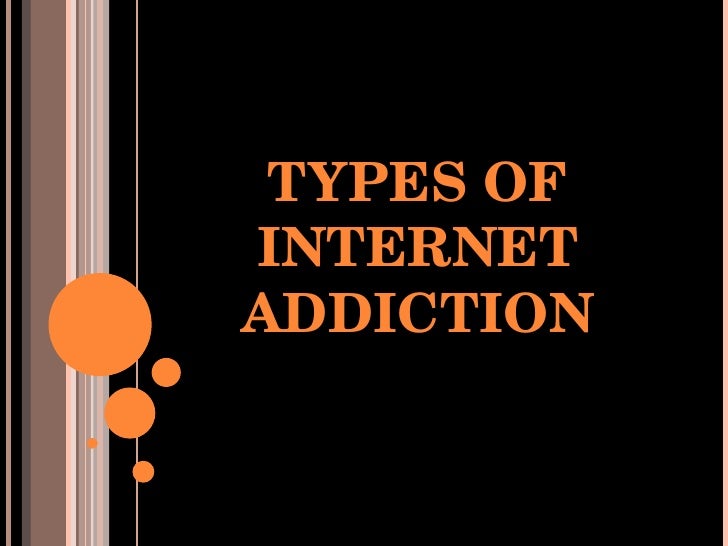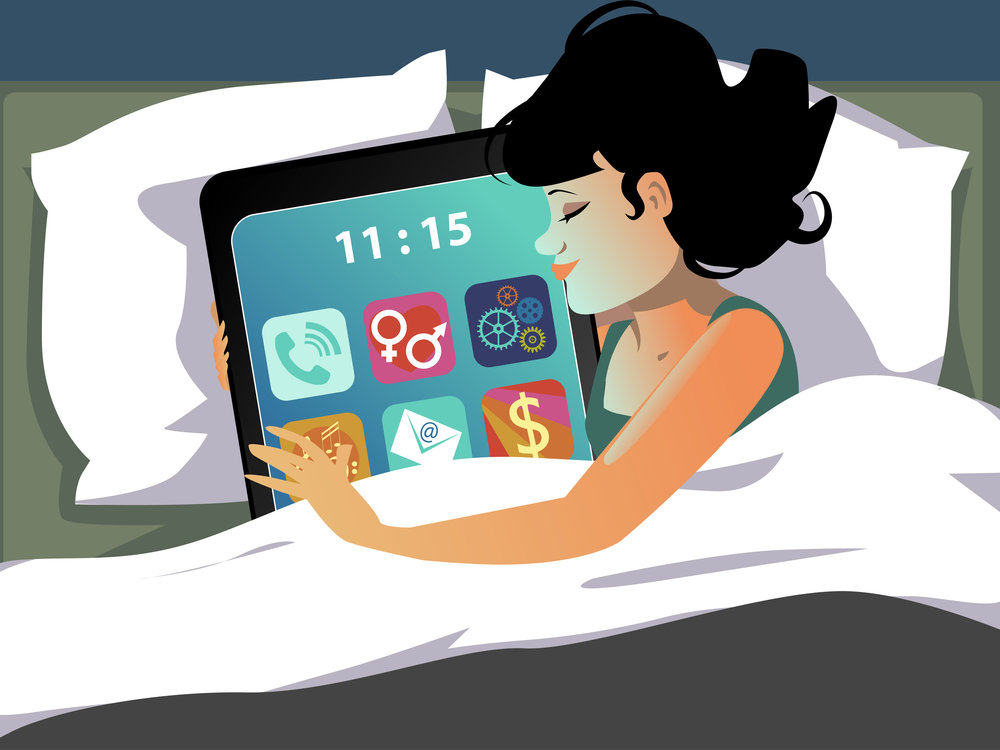Internet addiction is an issue that can be hard to understand. With so much information available at our fingertips, it’s not surprising that people are tempted to spend too much time online. But when does surfing the web become a problem? Here are some of the most common signs of internet addiction and what you should do if you think someone in your life might have this disorder.
Contents
What Is Internet Addiction?
 Internet addiction is a condition that refers to excessive use of the internet that results in negative consequences. People with internet addiction may excessively use the internet for activities such as gaming, shopping, gambling, or social networking. They may also spend long periods of time on the internet and experience withdrawal symptoms when they’re not online.
Internet addiction is a condition that refers to excessive use of the internet that results in negative consequences. People with internet addiction may excessively use the internet for activities such as gaming, shopping, gambling, or social networking. They may also spend long periods of time on the internet and experience withdrawal symptoms when they’re not online.
Internet addiction is not a formally recognized disorder. But there are people who seek treatment. This is because of their excessive internet use. If you or someone close to you is suffering from symptoms that interfere with daily life, professional help may be available. This can be done through an outpatient clinic. This specializes in the treatment of mental health disorders.
Signs of Internet Addiction

There are many signs that may depict internet addiction. Here are some of them:
Excessive Use
The person is spending more time on the internet than intended and it’s interfering with other activities they enjoy. It also may be causing problems at work or school. There can also be physical effects of too much time on the internet including eye strain and back pain.
Excessive Escapism
The person may be using the internet to escape from reality or their daily routine. They feel like they have no control over this behavior. They also may try to cancel appointments. This is in order to spend more time online. There can also be signs that someone is suffering from escapist tendencies. This is if there are legal problems such as speeding tickets related to driving while playing video games or shoplifting. It is because items were purchased online instead of at a brick-and-mortar store. The excessive use of gaming consoles, cell phones, computers, tablets, etc., facilitates escaping into an alternate world where one’s actions hold no real consequences and offers comfort. This is by serving as a distraction from negative life experiences.
Withdrawal Symptoms
The person may feel irritable, anxious, or depressed when they’re not online. They also may have trouble sleeping or concentrating. These are all withdrawal symptoms that can be associated with addiction disorders. This is why internet addiction has also been called “Internet Use Disorder” and is classified as an impulse-control disorder by the American Psychiatric Association.
Excessive Tolerance
The person may need to spend more time online. This is in order to achieve satisfaction or they can’t stop using. It is even though their life has become negatively impacted because of it. They may work overtime at a job that allows them internet access, play video games for hours on end. This is instead of spending quality time with family members or friends, neglecting household chores so they have more free time to use the computer, etc. This behavior indicates excessive tolerance that’s characteristic of many types of addictions including substance abuse disorders like alcoholism or drug addiction.
Constant Lying
There can be a lot of secrecy and lying about internet use when addiction is present. The person may try to hide the amount of time they’re spending on the internet, what sites they’re visiting, or how much money they’re spending. This is often because there’s a sense of guilt or shame associated with the addiction.
Types of Internet Addiction

There are certain types of internet addiction that tend to be more common than others. These include gaming, shopping/shopping addictions, social networking, and video games.
Gaming Addiction
This is the most common type of internet addiction because there are so many different types of online games available for people to play in their leisure time or as a way to connect with friends who live far away from them geographically. Gaming is usually done either at home on personal computers (PCs) or via console systems like an Xbox 360 or Playstation. When playing these games, gamers can become very absorbed into what they’re doing which results in hours upon hours being spent on just one game instead of participating in family activities together such as eating meals, going out to do things off-line, or engaging in other leisure pursuits.
Shopping Addiction
This type of addiction usually starts with someone being interested in bargain hunting and finding good deals on the internet. However, it can quickly turn into an obsession where the person is compulsively buying things they don’t need and may not even want. They also may feel a sense of euphoria while shopping which is similar to what people feel when they’re using drugs or alcohol. This behavior often leads to financial problems because the individual is spending more money than they have available. It can also lead to debt because bills aren’t being paid on time or items are being purchased with credit cards that will be difficult to pay off down the road.
Social Networking Addiction
This type of addiction is characterized by an excessive amount of time spent on social media websites. It can include spending hours on Facebook, Twitter, Instagram, etc., checking these sites numerous times throughout the day, and feeling upset or irritable when one isn’t able to get online to access them. People who are addicted to social networking may also feel a sense of FOMO (fear of missing out) because they’re worried about what’s happening with their friends and what they’re missing out on.
Video Game Addiction
This type of addiction is similar to gaming addiction but it typically refers to people who are addicted to massively multiplayer online role-playing games (MMORPGs). These are games where players create avatars and interact with others online. This can lead to spending hours upon hours playing these games and neglecting important responsibilities because they take priority over family, school, or work.
Causes of Internet Addiction

There are a variety of things that may contribute to internet addiction.
Genetics Factors
Research shows there’s a genetic component to addictions in general and online activities are no different than offline ones when it comes to this phenomenon. Studies show people with addictive tendencies tend to have family members who also struggle with substance abuse or other types of compulsive behaviors like gambling, overspending, etc. This makes them more susceptible to developing an issue themselves which can be triggered by exposure through social media websites as well as making the problem seem less taboo because they’re seeing others engage in this type of behavior and not being reprimanded for doing so 24/hrs per day since most families don’t live together anymore due to long-distance relationships among nuclear relatives, work, or schooling commitments.
Environmental Factors
The environment someone is in can also contribute to internet addiction. For example, if someone’s home life is chaotic and they’re not getting the emotional support they need from their family members, they may turn to the internet as an escape. Alternatively, if someone is feeling isolated because they don’t have many friends in person, they may spend a lot of time on social networking websites trying to build relationships with people who share their interests. This can then lead to them becoming addicted to social media which takes up more and more of their free time.
Psychological Factors
Certain psychological factors can also make someone more susceptible to developing an addiction to the internet. These include low self-esteem, depression, anxiety, and the need to be in control of one’s environment. Someone who is depressed, for example, may use a social networking site to connect with people because they’re not getting this from their offline relationships. They may also have low self-esteem which leads them to go online where they feel more confident about themselves compared to when interacting face-to-face or over the phone. Someone who has anxiety issues may find it difficult connecting with others through face-to-face interactions so they turn to the internet as an alternative way of making friends since there are no judgments and less pressure than if someone were approaching them at school or work out of nowhere trying to make conversation.
Overtime Use
Another contributing factor is how long someone spends on the internet. This can be from using it for work purposes, checking social media websites or emails numerous times throughout the day, playing video games, etc. The longer someone is online, the more likely they are to develop an addiction to it.
Negative Impacts of Internet Addiction

There are many negative impacts of internet addiction that can affect someone’s physical, psychological, and social health.
Physical Impacts
Some of the physical impacts of internet addiction include eye strain, neck pain, back pain, carpal tunnel syndrome, weight gain/loss, and sleep deprivation. All of these problems are caused by sitting in one position for an extended period of time or from excessive usage which can lead to overuse injuries.
Psychological Impacts
The psychological impacts of internet addiction can be just as damaging as the physical ones. These include anxiety, depression, low self-esteem, loneliness, isolationism, and ruined relationships with friends and family members. Sometimes people who are addicted to the internet will start experiencing hallucinations and delusions.
Psychological problems can also lead someone to become more anti-social when they’re spending time online because their social skills deteriorate from lack of practice in real-life scenarios which causes them anxiety so then instead of trying, they turn to other people on the web for support where no one is judging or criticizing them like friends and family would do if a person were face-to-face with others.
Social Impacts
This addiction can also have negative social impacts on someone. They may start to withdraw from friends and family members, miss important events because they’re too busy online, or lie about how much time they’re spending on the internet. Sometimes people who are addicted to the internet will start experiencing hallucinations and delusions.
Oftentimes, people who are addicted to the internet have a difficult time differentiating between what is real and what is not which can lead to them withdrawing from social activities or from the people they’re close with in order to spend more time on the internet. This can then cause them to feel even more isolated and alone than before, exacerbating their psychological problems.
Financial Impacts
This addiction can also have negative financial impacts on someone. They may start spending more money than they can afford on things like video games, clothes, or going out. It also means they have less time to get a full-time job or advance their career due to the amount of time they spend online instead.
How to Deal with Internet Addiction?

If you think that you or somebody you know may have an addiction to the internet there are some tips that can be taken in order for them to get help. Some of these are;
Control Your Usage
This also means to be aware that some people may use the internet. It is in order to escape from problems they’re experiencing, cope with anxiety or depression, get someone’s attention when they can’t face-to-face talk to them, etc. In these situations, it would help if you seek out professional counseling because this will give you a chance to deal with your issues head-on and not hide behind the computer screen.
Understand What Triggers You
If one of those triggers is an activity then try taking part in other activities. These are whether social or physical. These are such exercising outside like walking around the neighborhood, going for walks/jogging by yourself. This gives you time alone but still does something good for your health at the same time. It is instead of sitting inside browsing Facebook all day.
If you’re having a hard time disconnecting, or if it’s really bothering you that other people are online then talk to them about what they do and why so maybe there’s an alternative way for both of you. This is so that you get satisfied with your social life. This is when you are not addicted to the internet.
Try Disconnecting
For some people setting up parameters for themselves is helpful. These are such as only using their devices at certain times like from when they wake up. It is until noon every day or not using any electronic device after dinner time each night. This gives them more face-to-face interaction between family members. It is instead of spending all evening on sites like Facebook talking/text messaging others via their computer screen. This also helps prevent overuse injuries because hands are moving all the time.
Try Therapy
This is something that should be considered if the person has been struggling with their addiction for a while. You can also consider this when there are negative impacts on different areas of their life. This would help them deal with whatever is causing them to seek comfort on the internet. This is instead of dealing with things head-on.
Make Time for Real-Life Activities
Try scheduling time for things you enjoy doing in real life. These are such as exercise, hobbies like reading, or music/art classes. This is to give yourself a chance to interact with people face-to-face. It also makes sure that your addiction doesn’t get out of control. This can also help motivate someone who’s struggling. This is because they want to feel better about themselves physically. It is so this will be something good for them both mentally and physically. This is instead of the other way around where all their free time is spent online. This won’t do anything positive for them either.
Work on Your Social Skills
Some individuals may have difficulty talking one on one with others. This is whether it’s friends, family members, or even strangers. This is when they’re out in public. But if someone has an internet addiction then they may end up spending more time online than offline. This gives them less practice in being able to relate with others on a face-to-face level.
Conclusion
In conclusion, internet addiction can have severe consequences on one’s life if left untreated. It’s important to be proactive and understand the risks of overuse. This is so that you can take steps to prevent any long-term damage. If you know somebody who is struggling or thinks you may be struggling yourself, please seek professional help as soon as possible. Thank you for reading.
A Word From Therapy Mantra
Your mental health — your psychological, emotional, and social well-being — has an impact on every aspect of your life. Positive mental health essentially allows you to effectively deal with life’s everyday challenges.
Also, at Therapy Care, we have a team of therapists who provide affordable online therapy to assist you with issues such as depression, anxiety, stress, relationship, OCD, LGBTQ, and PTSD. You can take our mental health test. You can also book a free therapy or download our free Android or iOS app.


